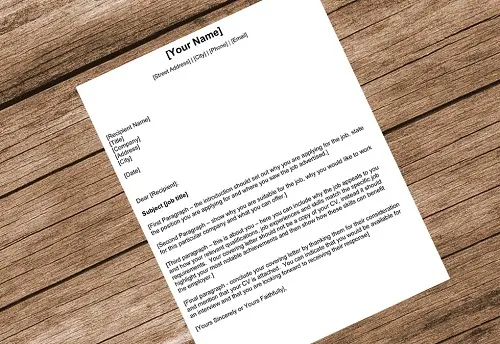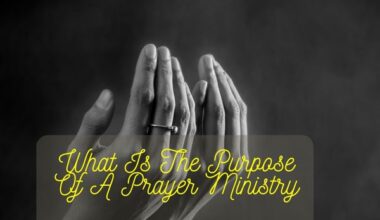Finding times of peace and a spiritual connection amid the chaos of everyday life can be difficult. However, there is a timeless practice that cuts through the clutter and calls us to explore the depths of our spirituality. This practice calls us to have a close, intimate relationship with the Creator. A three-day period of fasting and prayer is more than just a custom; it is a holy quest and a deliberate stop to seek direction, rejuvenation, and spiritual experiences.
As we set out on this spiritual journey, we invite the divine to reshape our viewpoints, fortify our faith, and unveil the amazing potential inside. We also open our hearts to the transformational power of prayer.
3 Day Fasting And Prayer Guide
A 3-day fast can be a powerful time of spiritual renewal and physical detoxification. It can help you draw closer to God, gain clarity on your life’s direction, and experience a deeper sense of peace. Here are effective tips to guide you through your 3-day fast and prayer.
Before Your Fast
1. Set your intention: What do you hope to achieve through your fast? Is it for spiritual growth, physical healing, or guidance on a specific issue? Having a clear intention will help you stay focused during your fast.
2. Choose your type of fast: There are many different types of fasts, from abstaining from all food and drink to simply giving up one vice or distraction. Choose a fast that is right for you and that you can stick with for three days.
3. Do your research: If you are new to fasting, it is important to do your research and talk to your doctor to make sure that it is safe for you.
4. Prepare your body: In the days leading up to your fast, avoid processed foods, alcohol, and caffeine. Eat plenty of fruits, vegetables, and whole grains. This will help prepare your body for the detoxification process.
5. Gather your supplies: You will need plenty of water, herbal teas, and broth to keep yourself hydrated during your fast. You may also want to have a journal and some inspirational readings on hand.
During Your Fast
Start your day with prayer: Dedicate your fast to God and ask for His guidance and strength.
Focus on hydration: Drink plenty of water and herbal teas throughout the day. Broth can also be a good option to help you stay electrolytes.
Get enough rest: Your body is going through a lot of changes during a fast, so it is important to get plenty of rest.
Spend time in prayer and meditation: Use your fasting time as an opportunity to draw closer to God. Read the Bible, pray, and meditate on His word.
Avoid distractions: This is not the time to catch up on your favorite TV show or scroll through social media. Use your time to focus on your spiritual growth.
Listen to your body: If you start to feel faint or dizzy, it is a sign that you need to break your fast. Don’t be afraid to listen to your body’s cues.
Breaking Your Fast
- Do it slowly: Don’t go from fasting to eating a big meal. Start with something light and easy to digest, such as fruit or yogurt.
- Listen to your body: Pay attention to how you feel after you eat. If you experience any digestive upset, slow down and eat smaller meals more often.
- Give yourself time to adjust: It may take a few days for your body to adjust to eating again. Be patient, and listen to your body’s needs.
After Your Fast
- Reflect on your experience: Take some time to reflect on your experience of fasting. What did you learn? How did it draw you closer to God?
- Integrate what you learned: Use the insights you gained from your fast to make positive changes in your life.
- Be grateful: Give thanks to God for the strength and guidance He gave you during your fast.
Additional Tips
- Find a fasting partner or group for support.
- Keep a journal to track your progress and reflections.
- Listen to uplifting music or podcasts.
- Spend time in nature.
- Avoid negative people and situations.
Significance Of 3-Day Fasting and Prayer Guide
The significance of a 3-day fast and prayer can vary depending on individual beliefs and religious traditions. However, some common interpretations include:
Spiritual Significance
- Increased spiritual focus. By refraining from physical needs like food, the mind becomes less distracted and more open to spiritual connection. This can lead to deeper prayer, meditation, and contemplation.
- Humility and submission. Fasting can be seen as an act of humility and submission to a higher power, expressing dependence on God’s grace and guidance.
- Breaking down spiritual barriers. Some believe that fasting can help clear away distractions and negativity, allowing for a clearer connection with the divine.
- Seeking guidance and clarity. A 3-day fast can be used as a way to seek God’s guidance on a specific issue or direction in life. The focused prayer and introspection during the fast can lead to insights and understanding.
Physical Significance
- Detoxification. Some believe that fasting can help cleanse the body of toxins and promote overall health. While the scientific evidence for this is limited, some studies suggest potential benefits for metabolic health and inflammation.
- Increased awareness of physical needs. By removing food from the equation, some find they become more acutely aware of their body’s other needs, like sleep, hydration, and movement. This can lead to healthier habits and greater self-awareness.
Psychological Significance
- Self-discipline and willpower. Completing a 3-day fast can be a challenge, requiring dedication and willpower. Successfully sticking to it can boost self-confidence and a sense of accomplishment.
- Mindfulness and focus. The act of fasting can promote a state of heightened awareness and focus, benefiting meditation, creativity, and problem-solving.
Religious Significance
- Many religions and cultures incorporate fasting practices into their traditions. In Christianity, 3-day fasts are sometimes undertaken during periods of preparation for major holidays or seeking God’s intervention in significant situations.
- Other religions, like Judaism and Islam, also have specific traditions and protocols surrounding fasting.
Additional considerations
- Be mindful of your physical and mental health when undertaking a fast. Listen to your body and break it early if you experience any adverse effects.
- Consult with a healthcare professional before starting a fast, especially if you have any underlying health conditions.
- Choose a focus or intention for your fast to help you stay motivated and grounded throughout the experience.
- Remember that fasting is not a competition or a means to punish yourself. It should be a positive and transformative experience that brings you closer to your goals.
Conclusion
We are standing on the edge of a spiritual peak as the last sounds of our prayers fade and the last day of fasting approaches. These past three days have been more than just a physical fast; they have been a spiritual adventure. By asking God for direction, being open to being vulnerable, and fostering spiritual closeness, we have created a sacred environment in which God can accomplish miracles in our lives.
May the memories of these prayers resound in our hearts, and may the life-changing encounters inspire us as we get back into the groove of our everyday lives. These three days have a lasting effect that serves as a springboard for a more meaningful, in-depth relationship with God.






